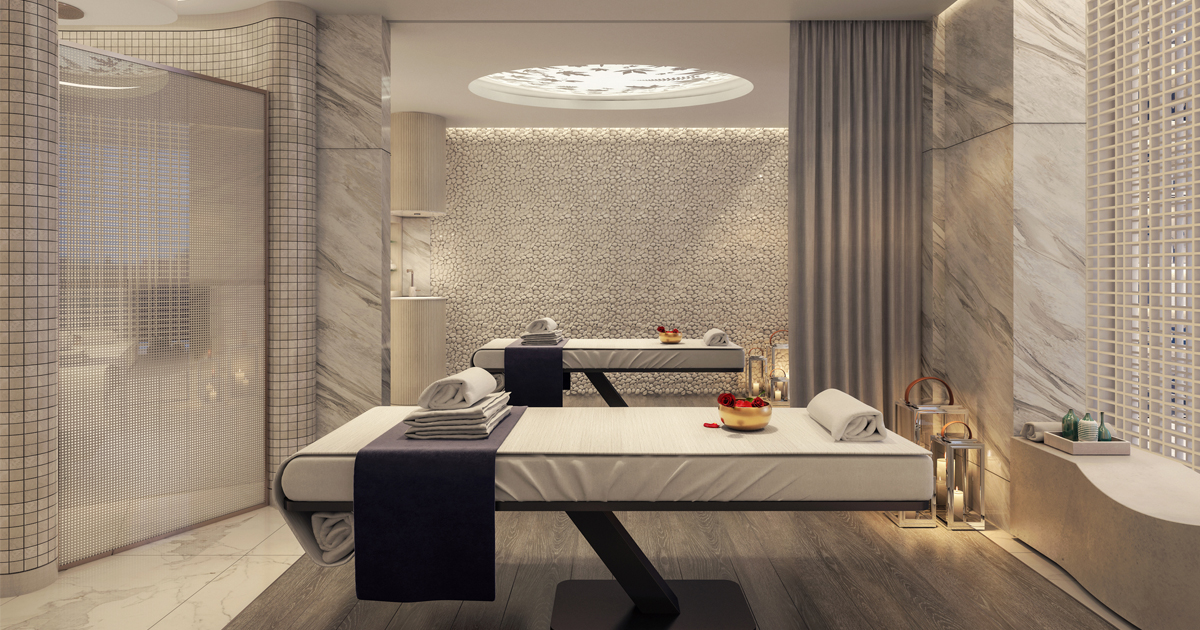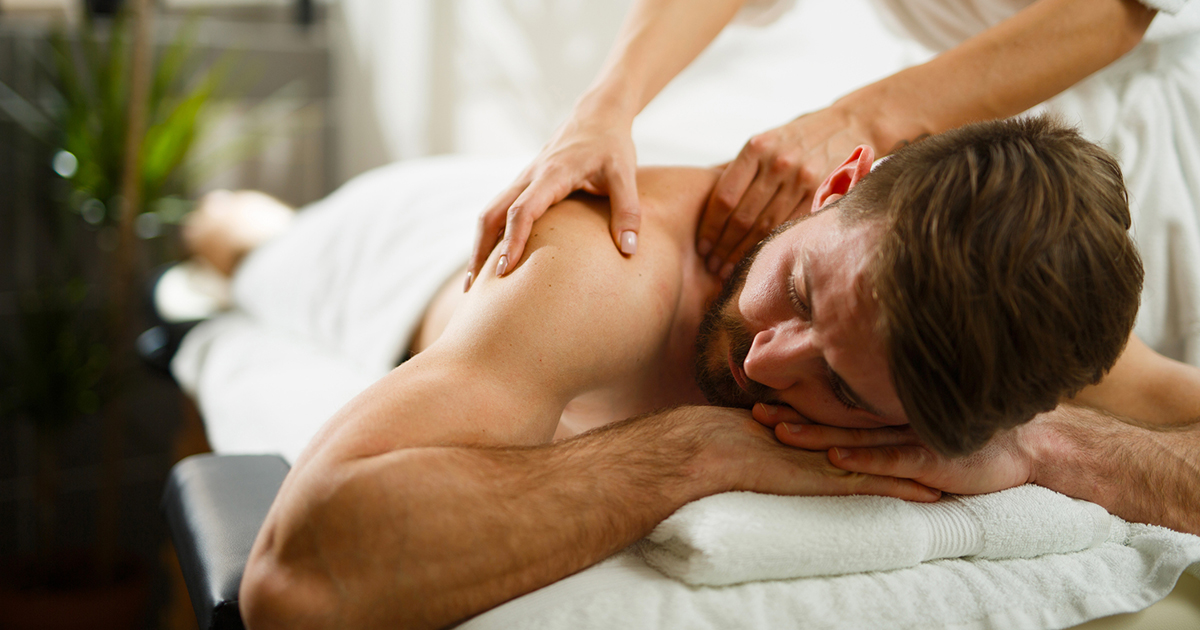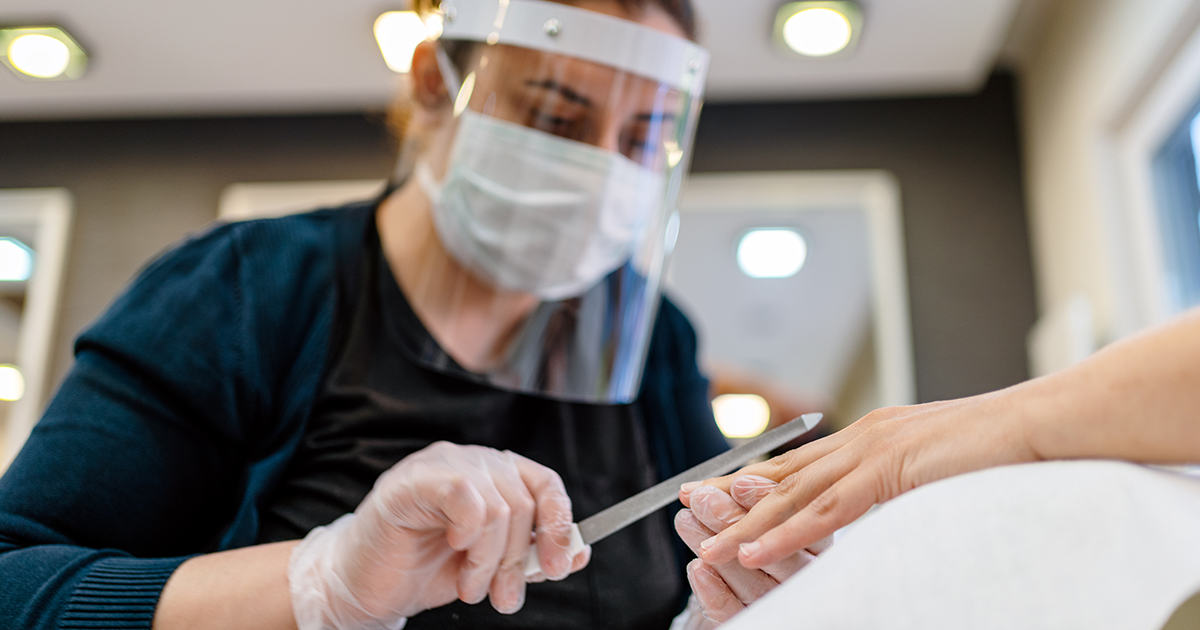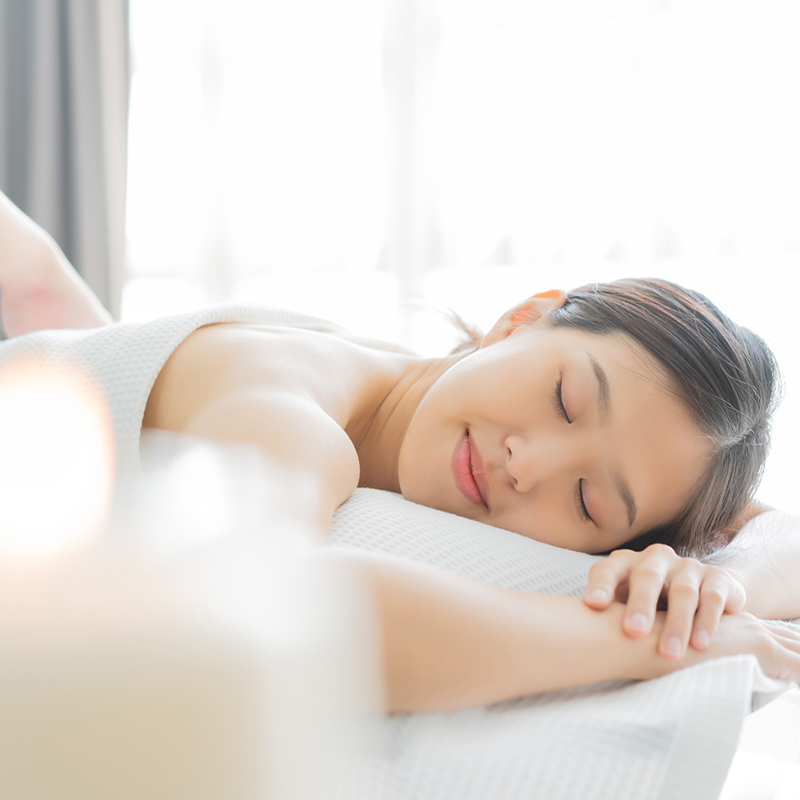
Modern life means beating deadlines, virtual home offices, and homeschooling, and information overload from multiple social media sites, not to mention keeping your home clean, cooking, remembering to shower, and trying to maintain a social life while social distancing. Your current lifestyle is likely bombarding you with stressors that impact not only your physical body but your mental health as well.
Trying to juggle so many demands can leave your body and mind stuck in fight or flight response. This translates into problems, such as not being able to concentrate, being unable to sleep, and feeling anxious and depressed. These mental health issues, left unchecked, attempt to get your attention by manifesting themselves in more physical ways, including muscle pain and inflammation, heart disease, and other chronic health issues.
A day at the spa is no longer just a luxury getaway enjoyed by the rich and famous. More and more people realize the importance of a reset for your body and mind that today’s modern spa treatments provide. Spa therapy can offer you an enjoyable way to release accumulated stress from your body and reap the benefits that relaxation can provide as a part of your healthy lifestyle.
What Is Spa Therapy?

If you’ve ever heard someone say, “I need a spa therapy day,” you may have wondered, “What do they do in spa therapy?”
During ancient Roman times, spa therapy was a water-based therapy reserved for royalty to provide physical and spiritual healing. Today’s modern spa therapy includes not only water-based therapies, but also various types of massage therapy, including Thai, deep tissue, and stone massage, facials, body treatments, and more.
The purpose of a spa remains the same—to provide a space where you can go to relax your body and your mind. Spa therapy provides physical, mental, and spiritual healing crucial in maintaining a healthy lifestyle and promoting longevity.
What Are the Health Benefits of Going to a Spa?
The health benefits of going to a spa are both physical and mental. Spas offer various treatments, including massage therapy, hydrotherapy, facials, manicures, foot therapy and pedicures, body wraps, aromatherapy, and acupuncture. Many spas even offer meditation, yoga, and Pilates. Each of these various therapy options helps your body to relax and release built-up stress and tension.
Spa therapy can also improve circulation, reduce inflammation in the body, and enhance the body’s autoimmune response. Additionally, going to a spa to relax and be pampered can improve your self-esteem and improve mental clarity.
How a Spa Benefits Your Mental Health

There are many ways a day at the spa is good for health and improving longevity. A day filled with relaxation and focus on the self can also have a positive impact on your mental health. Spa therapy can provide a way to combat the daily stressors that are a part of your life and help you keep anxiety and depression in check. A day at the spa can help you renew your spirit and allow space for your mind to regain clarity. Below you will find five ways spa therapy can provide benefits for your mental health.
1. Combat Depression
Spas provide several treatments such as massage therapy, aromatherapy, and meditation, all of which can help combat symptoms of depression.
Massage therapy can provide up to a 50% reduction in the levels of the stress hormone cortisol. Massage also increases the body’s production of serotonin and dopamine. Both are mood-stabilizing neurotransmitters that provide a natural “feel good” mood boost. Massage therapy can reduce physical symptoms of depression, such as joint pain and muscle tightness.
Aromatherapy, whether added to massage therapy, therapeutic baths, or by adding essential oils through a diffuser, can also help alleviate symptoms of depression. Beneficial essential oils include ylang-ylang, clary sage, sandalwood, and bergamot, among others.
Meditation, as a part of the spa experience, encourages a focus on the present moment. This often helps combat the tendency of people who suffer from depression to dwell on the past. Meditation also increases left frontal lobe activity, which in turn increases feelings of positivity.
Spending the day enjoying these treatments, or any others that spas provide to pamper yourself, and allowing someone else to take care of you are sure to improve your mood and create a more positive outlook.
2. Boost Confidence

Self-esteem serves a motivational function in relationship to achieving optimal health. Your level of self-esteem can make it more or less likely that you will take care of yourself and explore your full potential in life. People who suffer from low self-esteem are less likely to feel deserving of positive outcomes and are less resilient to adversity.
Spa therapy can help improve self-confidence. A massage can help you focus on your body in a more positive way. The mood boost provided by the increases in dopamine and serotonin can act as a reinforcement for caring for your body in other ways, such as exercising more and establishing healthy eating habits.
Improving your self-esteem can be achieved by, among other things, improving your physical body. Many spas offer a wide variety of body treatments to exfoliate and nourish your skin. The benefits of body treatments go beyond improving your physical appearance. Body treatments such as mud wraps help promote body detoxification, ease inflammation, and relax your muscles.
Like other spa therapies, this improvement to your physical being will extend to your mental wellness. When you take care of your body and pamper it, you will, in turn, have a more positive view of yourself.
3. Promote Relaxation

Achieving a state of relaxation regularly is necessary to allow your mind and body to recover from the physical impact of stress you deal with throughout the day. Studies show that soaking in warm water, such as hot tub therapy, can reduce the amount of cortisol in your system. By spending time relaxing in therapeutic baths, you can experience physical changes that will result in mental benefits such as reduced anxiety and increased relaxation.
Spending the day at the spa enjoying a deep tissue massage can release the built-up stress that manifests as tight muscles in your neck and shoulders. This release of tension allows the muscles to relax, and in turn, the mind relaxes too.
A facial involves cleansing, exfoliating, and hydrating the face while giving your facial tissue a light relaxing massage sure to help put your mind at ease. It also relieves tension in the head and neck, which can reduce headaches.
Another opportunity to promote relaxation is a foot spa, good for you mentally and physically. Most traditional foot massages focus on relaxing the muscles in the lower legs and feet and increasing blood flow to the joints. Adding aromatherapy to the foot spa experience enhances the feeling of relaxation by acting on several senses simultaneously.
4. Encourage Better Sleep
To feel your best mentally, it is important to get enough sleep. Regular spa therapy can help you get a better night’s rest. Choosing a deep tissue massage will not only relax your muscles, but it will also release serotonin into your body. Your body needs to build up a surplus of serotonin to begin converting it to melatonin, the primary sleep hormone. Hot stone therapy, in conjunction with a massage, can reduce pain and improve sleep.
Another option to consider if you are looking to get a better night’s sleep is water therapy, such as a hot tub. Soaking in hot water will relax you both physically and mentally. An additional benefit of hot tub therapy is that after you get out of the water, your body’s internal core temperature drops, which in turn signals your body that it is time to rest

Both massage therapy and hot tub therapy can improve your circulation. Improving circulation and lowering blood pressure can improve your body’s ability to rest properly. By choosing to spend the day at the spa, you can reap the mental health benefits of a great night’s sleep.
5. Aid in Overall Stress Reduction
Stress can harm your physical and mental health and contribute to health issues such as heart disease, depression, weight gain, and sleep issues. It is important to take the time to relax your mind and body to control your anxiety and stress levels. By keeping stress in check, you can improve your physical health. Spas can help reduce the stress on our physical body, and a spa day can serve as a great resource for overall stress reduction.
By caring for our skin, our largest organ, we can reduce the overall impact of stress on the body. The cumulative negative impact of pollution, stress, and hormones results in damaged skin. By making time to care for your skin and the rest of your body, you can reduce the negative impact of environmental stressors.
Most spas choose to incorporate products that enhance the stress reduction benefits of your therapy option. Adding the benefits of aromatherapy, using soothing scents of eucalyptus and lavender in various lotions and scrubs, increases your relaxation and reduces stress.
Regular spa treatments result in better quality sleep, fewer sick days, and an overall sense of well-being. Taking a spa day will help you slow down, unwind, and achieve balance.
Find a Spa That’s Right for You

There are many types of spas, and they offer a wide range of therapy options. There are day spas, spas that provide a whole week of relaxation and healing, spas that specialize in massage, spas that focus on hydrotherapy, and spas that offer complete wellness care and classes. Maybe you are just looking for a quick manicure and facial. Knowing which one is right for you can seem overwhelming.
Making a trip to the spa a regular part of your health routine is an important way to combat the stressors in your life. Prioritizing yourself will lead to a healthier and happier you, which’s the best gift of all. So next time you feel like you need a spa day, take it—it’s good for you!
Chief Operating Officer, The Compounding Pharmacy of America
Matthew Poteet, Pharm.D. graduated with Honors from Lee University with a Bachelors of Science in Biological Science. After his undergraduate training, he completed the Doctor of Pharmacy program at Mercer University Southern School of Pharmacy, graduating in 2004. Dr. Poteet has spent much of his pharmacy career on staff at two of the most prestigious academic teaching hospitals in the Southeast; Emory University in Atlanta and Vanderbilt University Medical Center in Nashville. At these institutions he received extensive experience and training in sterile products compounding.
He returned home to East Tennessee in 2010, where he has held the position of Pharmacy Director at two sterile products pharmacies in Knoxville. Matthew lives in Knoxville with his wife, Chris. Dr. Poteet is Tennessee’s first Board Certified Anti-Aging Pharmacist by the American Academy of Anti-Aging Medicine.
 Subscribe to Our Newsletter
Subscribe to Our Newsletter


